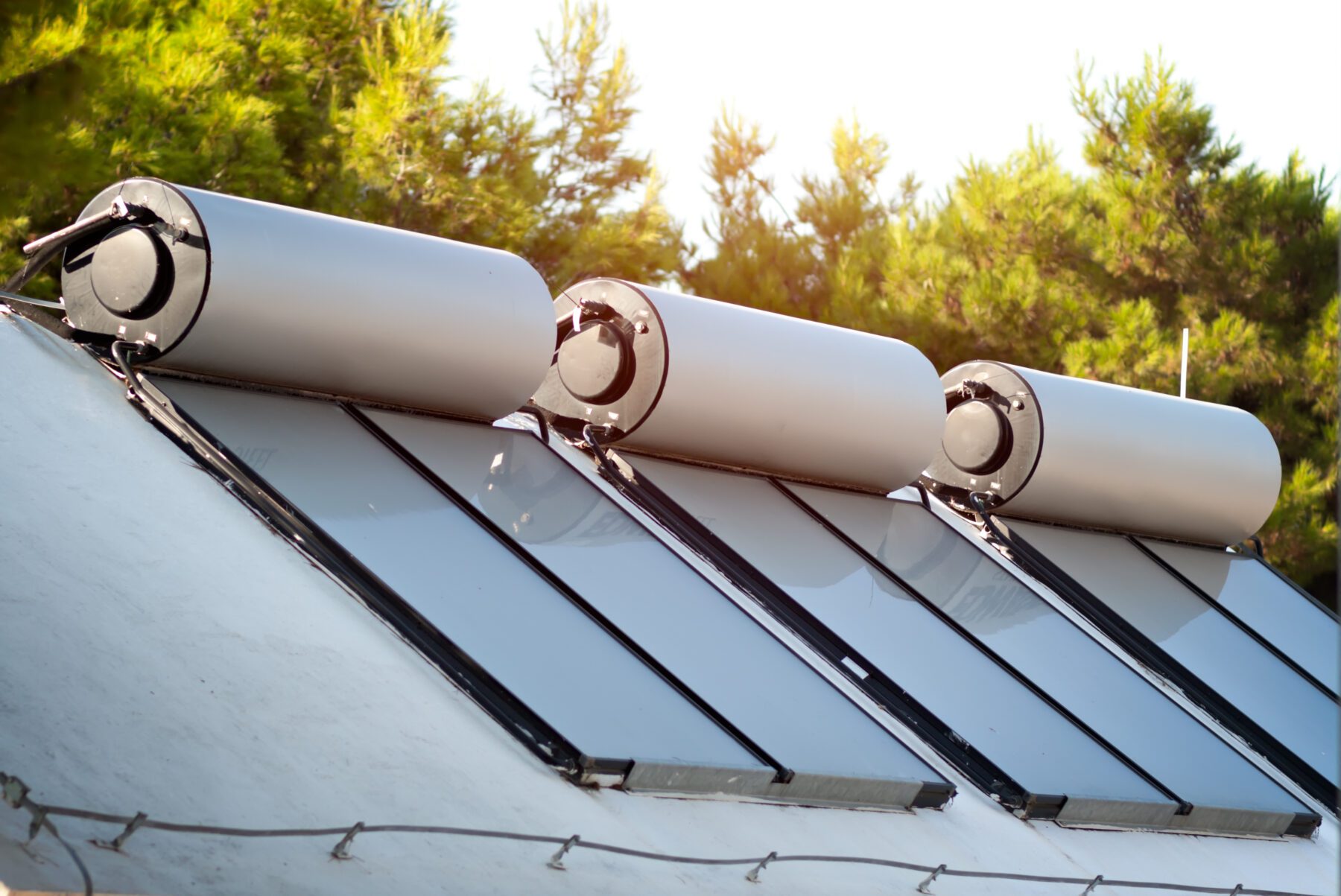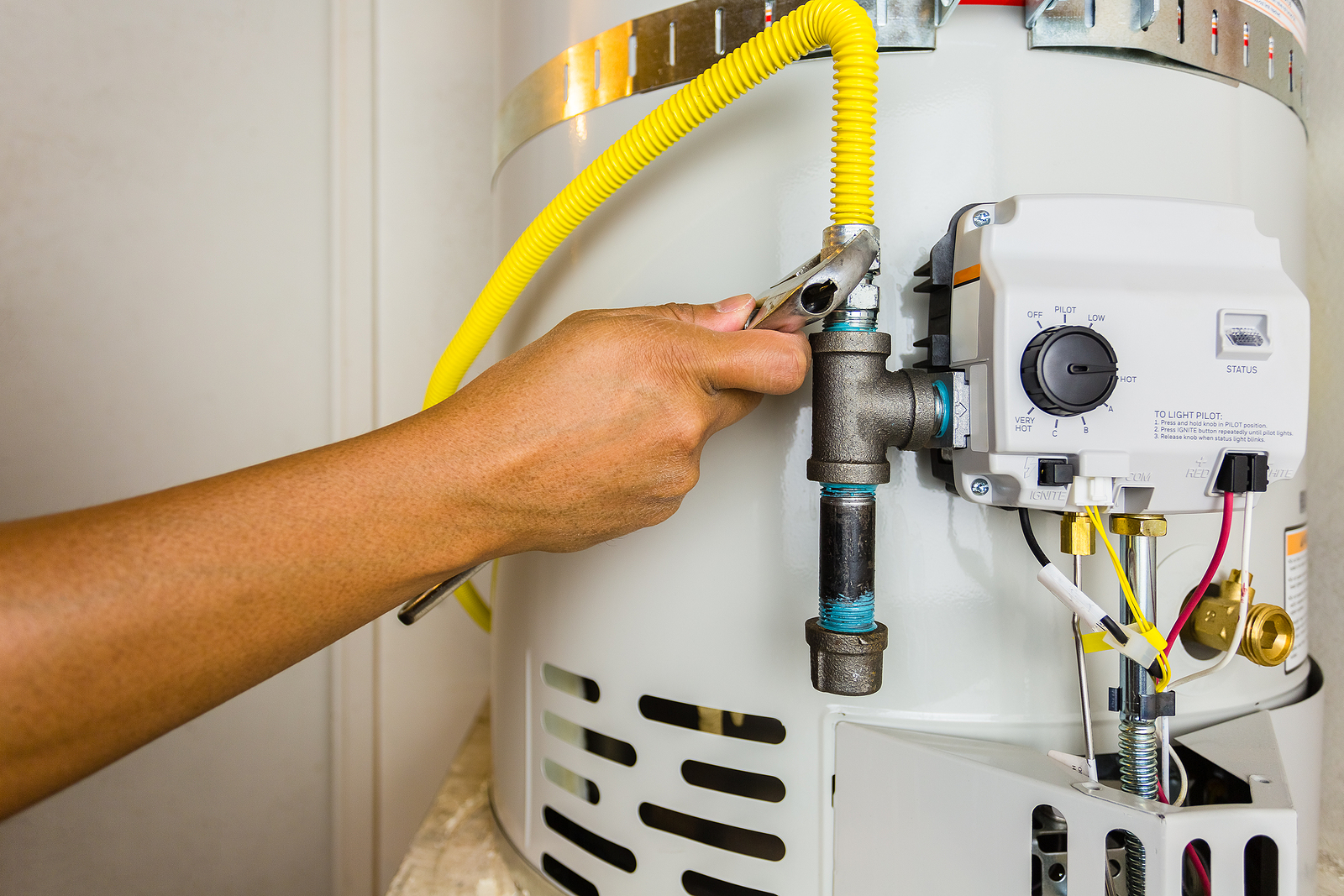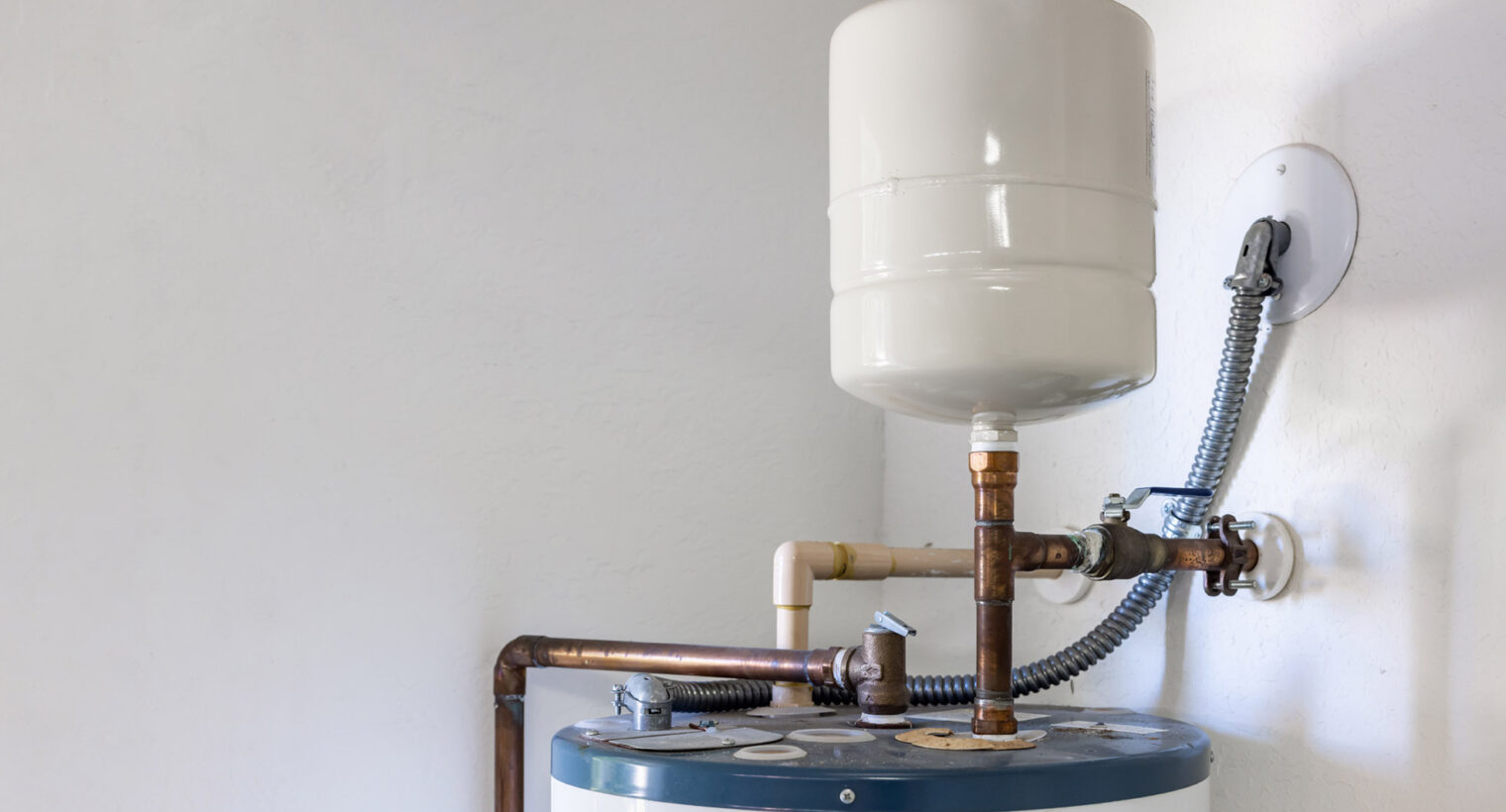This article is your guide to answering what size water heater do I need for my house. Typically, the average home needs a 50 gallon hot water tank for a 4 person family. A family that uses a lot of water might need an 80-gallon or more, so keep reading to see what type of hot water heater size you need for your home!
Here at The Energy Professor, we want to give you the information you need to not only save money on your energy bill, but to also become more energy efficient. We hope find this post helpful! And makes it easier for you to know more about appliance energy usage. Be sure to also check out our one-of-a-kind energy savings calculator!
The Energy Professor Electricity Rate Check Tool
What Size Water Tank Do You Need for Your Home?

Determining the right water heater size largely depends on two factors: your household’s daily water usage and the water heater’s first hour rating (FHR). FHR indicates how much hot water the heater can provide in an hour starting with a full tank.
For an average family of four, a 50 gallon hot water tank might suffice. However, larger households or those with luxury baths might lean towards an 80 gallon hot water heater or even larger.
Consider these steps for sizing a water heater:
- Estimate Daily Usage: Calculate how many gallons of hot water your household uses during peak hours.
- Check the FHR: The FHR should be within 1-2 gallons of your peak hour demand.
- Tank Size: For homes with 1-2 people, a 30-40 gallon heater is typically sufficient. A family of 3-4 might opt for a 40-50 gallon tank. Larger families or homes with a high demand should consider 50-80 gallon tanks or even multiple hot water heaters.
To make your decision easier, consider using a water heater sizing chart or consulting with professionals. The water storage tank sizing should meet your household’s demands while being energy efficient. After all, too large a unit can result in energy waste, while a smaller unit might leave you with cold showers.
Choosing the right water heater is crucial for your home’s comfort. Make sure you consider both your current and future needs when making this decision. With the knowledge from this guide, you’re well-equipped to make an informed choice that serves your home well. Happy heating!
Related post: How to Increase Your Water Heater Efficiency
How to Determine What Size Water Heater You Need

Choosing the right size water heater is crucial for ensuring a consistent supply of hot water for your household’s needs without wasting energy and money. Many homeowners have been wondering why their energy prices have been increasing. There are many hidden electricity drains, with an oversized water heater being one of them.
Therefore, it is important to be aware of your water heater size to ensure you’re saving on money, but also conserving water. Here’s a step-by-step guide to help you make an informed decision:
1. Understand Your Daily Hot Water Needs
Start by calculating the peak hour demand – the time when your household uses the most hot water. This could be in the morning when everyone is taking showers, doing laundry, and washing dishes. List out all the water-using fixtures and appliances and estimate their usage:
- Shower: 10-15 gallons
- Bath: 20-25 gallons
- Handwashing: 1 gallon per minute
- Dishwasher: 6-16 gallons per load
- Washing machine: 25-40 gallons per load
- Kitchen sink: 2-4 gallons
2. Check the First Hour Rating (FHR)
The FHR on a water heater indicates how much hot water it can provide during a busy hour. This should be your main point of reference when shopping for a new water heater. Ideally, the FHR on the heater should be within 1-2 gallons of your peak hour demand.
3. Consider the Number of People in Your Household
As a general rule of thumb:
- 1-2 people: 30-40 gallon tank
- 2-3 people: 40-50 gallon tank
- 3-4 people: 50-60 gallon tank
- 5 or more people: 60-80 gallon tank or consider multiple heaters or tankless options
Types of Water Heaters
First, understanding the types of water heaters available can narrow down your choices. The main categories include:
- Tankless (On-Demand) Water Heaters: These heat water directly without the use of a storage tank. They’re energy efficient but may require a higher initial investment.
- Storage Tank Water Heaters: The most common type found in homes, these have a tank where hot water is stored and heated.
- Heat Pump Water Heaters: Instead of generating heat directly, they move heat from one place to another. They can be more energy efficient than traditional models.
- Solar Water Heaters: Using solar panels installed on the roof, these convert sunlight into heat to produce hot water.
Fuel Types for Water Heaters
The fuel source you select for your water heater will significantly impact its operation, cost, and efficiency. Here’s an in-depth look at the commonly used fuel types:
1. Electricity:
Pros:
- Availability: Electric water heaters are commonly used due to the widespread availability of electricity. They’re suitable for homes that don’t have access to natural gas lines.
- Installation: Electric models are generally easier and less expensive to install because they don’t need venting systems.
Cons:
- Operational Costs: While the upfront cost might be less, electric water heaters can be more expensive to run in areas where electricity rates are high.
- Recovery Rate: Electric heaters tend to have a slower recovery rate, meaning they might take longer to heat a tank of water compared to gas heaters.
2. Natural Gas:
Pros:
- Cost-Effective: In many regions, natural gas is cheaper than electricity, leading to lower operational costs over time.
- Recovery Rate: Gas water heaters can heat water faster than their electric counterparts.
Cons:
- Venting Requirement: They require a venting system to expel exhaust gases, which might complicate installation and increase upfront costs.
- Safety Concerns: Although rare, gas leaks can pose risks.
3. Propane:
Pros:
- Alternative to Natural Gas: In areas without natural gas access, propane can be a viable option.
- Efficiency: Propane water heaters can be efficient and have a good recovery rate.
Cons:
- Cost: Propane is typically more expensive than natural gas, leading to higher running costs.
- Tank Refills: Homes using propane typically have a tank that needs refilling or exchanging, adding an element of maintenance.
4. Solar:
Pros:
- Eco-Friendly: Solar water heaters reduce the reliance on fossil fuels, making them environmentally friendly.
- Reduced Operational Costs: Once installed, the energy from the sun is free, leading to potentially significant savings over time.
Cons:
- Upfront Costs: Installation of solar panels and the associated water heating system can be expensive.
- Inconsistency: On cloudy or rainy days, solar systems might not provide enough hot water, necessitating a backup system.
It’s crucial to analyze local fuel costs, your household’s hot water demands, and the potential long-term savings when choosing a water heater. Each fuel type has its advantages and drawbacks, so consider what aligns best with your priorities, whether they lean towards cost-saving, environmental concerns, or ease of installation and use.
Related post: How to Conserve Water
Water Heater Size FAQ

What is the standard size water heater for a 3 bedroom house?
For a 3-bedroom house, considering average usage, a 40-50 gallon tank should suffice.
What size water heater do I need for a family of 4?
A family of four typically requires a 50 gallon hot water tank, but this can vary based on daily hot water usage.
Should I get a 40 or 60 gallon water heater?
It depends on the number of occupants and the daily hot water consumption. For smaller households of 1-3 people, a 40-gallon tank is generally sufficient. For larger households or homes with multiple baths, a 60-gallon tank may be more appropriate.
Should I get a 40 or 50 gallon water heater?
If you’re a family of 2-3, a 40-gallon might be adequate. However, for households of 3-4, considering extra buffer, a 50 gallon hot water tank is often a safer choice.
Do you Need Cheaper Electricity?
If you’ve taken the time to understand the information on your bill and discovered you’re paying more than you’d like for your electricity, have you looked around for a cheaper deal? The Energy Professor has a wealth of information on ways to save on your utilities, including details of top deals that could significantly reduce your monthly or quarterly electricity bills.
We hope you found this article helpful! If you are looking for ways to increase the energy efficiency and sustainability in your home be sure to take a look at all of the latest renewable energy options in your area. The Energy Professor helps residential and small business owners find qualified energy suppliers in New York, New Jersey, Pennsylvania, Texas, Ohio, Maryland, Illinois, and Massachusetts


